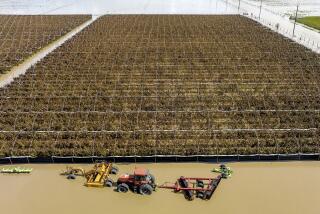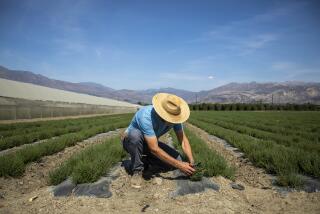Back to Basics: A Primer on Organic Certification
- Share via
Certified organic farmers must avoid synthetically compounded fertilizers and pesticides. Instead, they must rely on crop rotation, composting and aspects of biological pest control to maintain soil fertility.
Mined chemicals, such as sulfur, are permitted, as are botanical pesticides. These pesticides may not be safer than synthetically produced ones, but they are usually shorter-lived.
No one public agency sets standards for certification, but the California Health and Safety code states that products labeled “certified organic” must say who did the certification.
The most widely used certifying body is California Certified Organic Farmers, or CCOF, a nonprofit group that is the biggest of its kind in the nation.
CCOF’s standards are in line with just-passed federal standards. The group helped draft the federal legislation and was also instrumental in AB 2012 (the organic food act of 1990), which has been passed by the state Assembly and is now headed to the Senate floor for a vote sometime this week.
A farmer who wants certification applies to CCOF and pays a $150 fee. The group assigns the case to the regional office closest to the farm, and that office sends an inspector to run soil tests. The inspector visits at least twice during a transition period (this will increase as the transition lengthens under new rules). One visit is scheduled, and one is a surprise.
After the farm has passed its inspections and concluded its transition, it is officially certified. The entire process, including costs for soil tests, may run as high as $1,500 or so, depending on the size and location of the farm.
A one-year transition before a farm can be certified organic has been the norm, but CCOF is phasing in a three-year transition in line with the U.S. rules.






